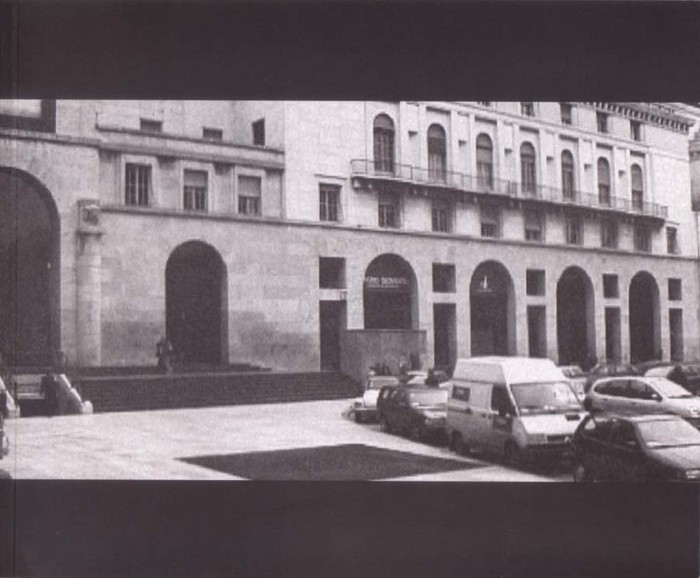ANTIGONE'S NAKEDNESS PUBLISHED IN: VITTORIA A FILM BY STEPHANIE STEIN COLOGNE 2001

published in:
VITTORIA
A Film By Stephanie Stein
Cologne 2001
VITTORIA
A Film By Stephanie Stein
Cologne 2001
Antigone caresses this lie. She jealously receives it. She kisses and sleeps with her lie which for her is not only a child but also a lover in solidarity. Who has noticed the nakedness of the girl who in her rare mourning clings to a lie as if it were the only thing she possessed? With the sharp wits of someone who is overtired, Antigone has an overview of her fate. She accepts that she has to die. It costs her less than living without having loved with this kind of passion which is equally madness and crime. Completely absorbed with herself and her lie, she nevertheless surrenders herself to the incalculability of the act of loving. One will have to follow the traces of a desire which directs its pleasure at itself in order to experience this self as a something unknown which is no longer able to discriminate between lie and love. One will no longer be able to close oneself off from cruelly witnessing this act of self-annihilation. One will answer to the question concerning the object of love, lie, and conversely. One will recognize Antigone as one’s own lie of love and submit to her immoderateness by confusing from now on her fatigue with one's own sleeplessness. The lie is just as much a frenzy as it is love. One falls without knowing for how long and with what consequences and whither. And yet, Antigone is not without certainty. Her death has assumed the character of something matter-of-fact. Death robs her of her lie and consummates it at the same time. Antigone's death has something resembling a mendacious self-evidence. What does matter-of-factness mean when one is speaking of dying?
To love Antigone means to love this lie of love for which her name stands in the history of literature and theory. This love is itself literary. It produces its own singular law which is not binding for society in general. To love the lie of love is an act of self-literarization. The entire effort aims at setting up and maintaining a fictitious state which is binding only for itself. This form of production of meaning has been opposed as ideological and insincere. One speaks of the imaginary. One suggests an authenticity with the means of psychoanalysis and equally with the instruments of Critical Theory. But Antigone could represent a problem which is far more questionable. It has to be understood that Antigone is naked. Her nakedness is decisive for the question concerning a new understanding of politics and ethics and their relationship to violence. The intensity of Antigone's love can be taken as a result of her desertedness in view of a freedom which, as absolute freedom, is more a curse than a happy dispensation. The frenzy of the lie seizes the girl at the brink of this abyss, which is the abyss of her freedom and complete nakedness. Thrown back onto the herself, Antigone decides in favour of a lie which consists in the love of decisiveness as such. What does Antigone decide in favour of? She decides in favour of decisiveness. What does Antigone love? Love. It is similar to the child playing the great game of the world, about which Heidegger speaks in his critical engagement with Heraclitus' 52nd. fragment. Why does the child playing at the brink of the abyss play? "It plays because it plays." It has no ground, no reason.
transladet by Michael Eldred
